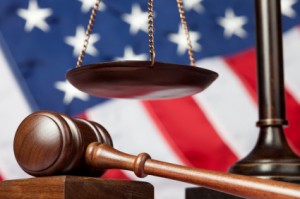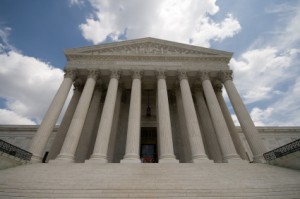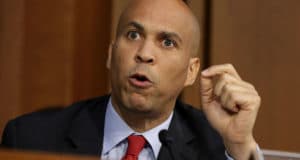 For its entire history, (more than 230 years), the United States has been the world’s best hope … “a shining light on the hill” beckoning to the oppressed and downtrodden everywhere; the one place on the globe where personal freedom – along with unlimited opportunity – has always been assured.
For its entire history, (more than 230 years), the United States has been the world’s best hope … “a shining light on the hill” beckoning to the oppressed and downtrodden everywhere; the one place on the globe where personal freedom – along with unlimited opportunity – has always been assured.
And yet, in the early days of the 21st Century, it may be fair to ask if a new and different United States has emerged, one that practices rewarding supporters of the political class while punishing political opponents, functioning as a police state. If you’ve lived your life as an American, these thoughts may be unsettling but they must be examined.
First, let’s determine the definition of a “police state,” or to be more accurate, the definition of a “fascist police state.” A police state, instead of allowing the law to function properly as a mechanism that assures a civil and just society, uses that law to suppress opposition and challenges to its power and authority from ordinary citizens.
When the state (or government) does this, it alone has the ability to interpret the law and it can then use the law as it pleases to the detriment of an individual or a group. In essence, the law becomes a tool the state can use to further its repressive or illegal policies.
In this dark world, citizens are free only if their actions remain within the restrictive confines and policies of the governing or, more appropriately, ruling state. If an individual or an organization comes into conflict with the state over a legal matter, the state will always prevail by using the law to repress the offending individual or group.
That is certainly not the republic Americans have known, nor is it freedom. It is, by definition, a police state, because the offending citizen no longer has the right of legal redress. And if that right has been removed, the result is, quite simply, a police state.
In this nightmarish scenario, the justice system exists but is never available to the ordinary citizen as a fair and open forum, and it does not provide the protections one expects in a free and just society. It is nothing more than a tool of the state.
Now, it’s interesting to note that a police state is not necessarily a dictatorship. In fact, many police states have in the past taken the form of representative democracies. That’s because a police state is not defined by its leadership or political structure. It is, however, clearly defined by its desire (and its ability) to protect itself and its interests against those of the individual citizen.
What about “fascism” … how is it defined? A rough definition might be to call it the tyranny of the Right … just as communism might easily be referred to as the tyranny of the Left. But these are rough definitions and may not do enough to clarify and provide the true meaning of these words.
Perhaps a better definition of fascism is the one that places the state as just another competing entity seeking to advance its selfish interests, along with corporations and unions, for example, but the entity that is the most powerful and best able to control the others.
Is it possible for an individual citizen to have power in a fascist or police state as previously defined? Generally speaking, the answer is no. However, the average citizen can enjoy greater personal standing (and even thrive) in such a dark society by belonging to a favored group.
We’ve now defined fascism and the police state. However, none of that answers the most important question: is the United States today (in the early 21st Century) a fascist or police state?

Is the Holder vs. Humanitarian Law Project decision proof that the U.S. is indeed a fascist state?
I’ll try to answer that question by citing Holder vs. Humanitarian Law Project. The Humanitarian Law Project had been advising groups that were looked upon as “terrorist” by the U.S. government. Their advice centered on instructing these “terrorists” with various political agendas how to negotiate their demands peacefully and to avoid the use of violence to achieve their goals.
The Supreme Court, in a 6-3 decision, determined that the assistance provided by the Humanitarian Law Project constituted aiding and abetting a terrorist organization and was a method by which material support was also provided.
Obviously, the Humanitarian Law Project was forced to cease and desist. But, a larger question about this decision remains. Does that judicial decision now mean that the executive and/or the congress now has the right to bar any individual or group from speaking to a terrorist organization?
If your sensibilities and beliefs are Left of center, you may look at that decision as proof that the United States is indeed a fascist police state. If, however, your beliefs are more traditional and you tend to believe that the government’s primary role is the protection and security of its borders and its people, you may disagree that the judicial decision against the Humanitarian Law Project paints the United States with the broad brush of racism, fascism, tyranny and the horror that is a police state. Then again, who will be called a “terrorist” next? Are you already on a watch list if you’re pro-life, pro-gun, or oppose open borders or gay marriage?
Clearly, this is a difficult issue that is anything but black and white. There are lots of shades of gray. If you believe in freedom of speech, you are likely to think the United States is now a police state. But (and this is a very big “but”) if you recognize the need to sacrifice a little bit of your personal freedom in times of great peril (such as the times we live in right now), than you understand that the United States is not a fascist police state, but is, instead, fulfilling its mandate to protect its citizens by making it difficult or even impossible for individuals or groups to assist “terrorist” groups.
Again, it is easy to interpret the decision by the Supreme Court as one that gives the state the right to further its power and to suppress any and all opposition to its policies. It alone, through its executive or congressional branches, can determine who is a terrorist threat and who is not. That may seem to be unbridled and dangerous power that, in the hands of the unscrupulous, can lead to tyranny.
Many would argue the United States has a long, long history in which its government has used power fairly and wisely. And there are precedents where the government, in a time of war, may have limited some constitutionally-mandated freedoms for the greater common good. The argument is that this is what free societies need to do in times of war.
On the other hand, I’m inclined to believe that leaders throughout history have always used war-time powers to curtail liberties and exercise greater control over the population. Lincoln did it to anyone in the North who dared disagree with him, and history has shown that FDR exceeded his constitutional powers during World War II.
Are we at war today? Some, particularly those on the Left, say we are not and that the state needs to limit its power and authority. Many conservatives will claim that we are in a global struggle for survival and dominance with an enemy that wants to wipe us off the face of the earth. Yet others, including many libertarians, will say we have no business fighting these wars that only target Americans because we have inserted ourselves into conflicts which predate our own nation’s founding by many centuries. I happen to believe that while we have done some good in recent wars, we are likely creating more enemies.
If, in fact, we are at war, most reasonable people will be glad to give the government powers it doesn’t normally enjoy and will be willing to sacrifice some of their personal freedom in the bargain. The reason is simple and sensible—it is all about survival. And yet, when a government has been given power, does it ever return it peacefully?
Other articles in this issue:
- 10 Ways to Survive any Crisis
- A City Boy’s Guide to Surviving in the Wilderness
- Surviving Hurricane Wilma
If you liked this article you may be interested in this product from our sponsor.

 Off The Grid News Better Ideas For Off The Grid Living
Off The Grid News Better Ideas For Off The Grid Living



